Abstract
The purpose of this study was to determine black adult males' knowledge and perceptions of prostate cancer by using the Health Belief Model. The subjects were obtained by randomly approaching males in churches, housing projects, inner-city health clinics, and inner-city shopping centers in seven major Ohio cities. A total of 290 black males responded to the survey (58% usable response rate). The mean age of respondents was 60 years (standard deviation = 13.8). Subjects often did not identify trouble urinating, pain urinating, or blood in the urine as possible signs of prostate cancer. Less than half of the subjects knew at what age one should start to have prostate examinations. Forty percent did not believe they were more likely than most men to develop prostate cancer. Almost 60% did not know black men were more likely than white men to develop prostate cancer, whereas 45% thought that if they had prostate cancer it would kill them, and another 28% were not certain. The vast majority of respondents did not perceive any barriers to having their prostate checked, yet 19% identified cost of the examination as a potential barrier. Approximately 10% to 20% of the respondents were unsure of or did not agree with the benefits of a prostate examination. Analysis of the effects of age, education level, and income levels on the Health Belief Model variables found level of education had the most significant effect followed by level of income.
Full text
PDF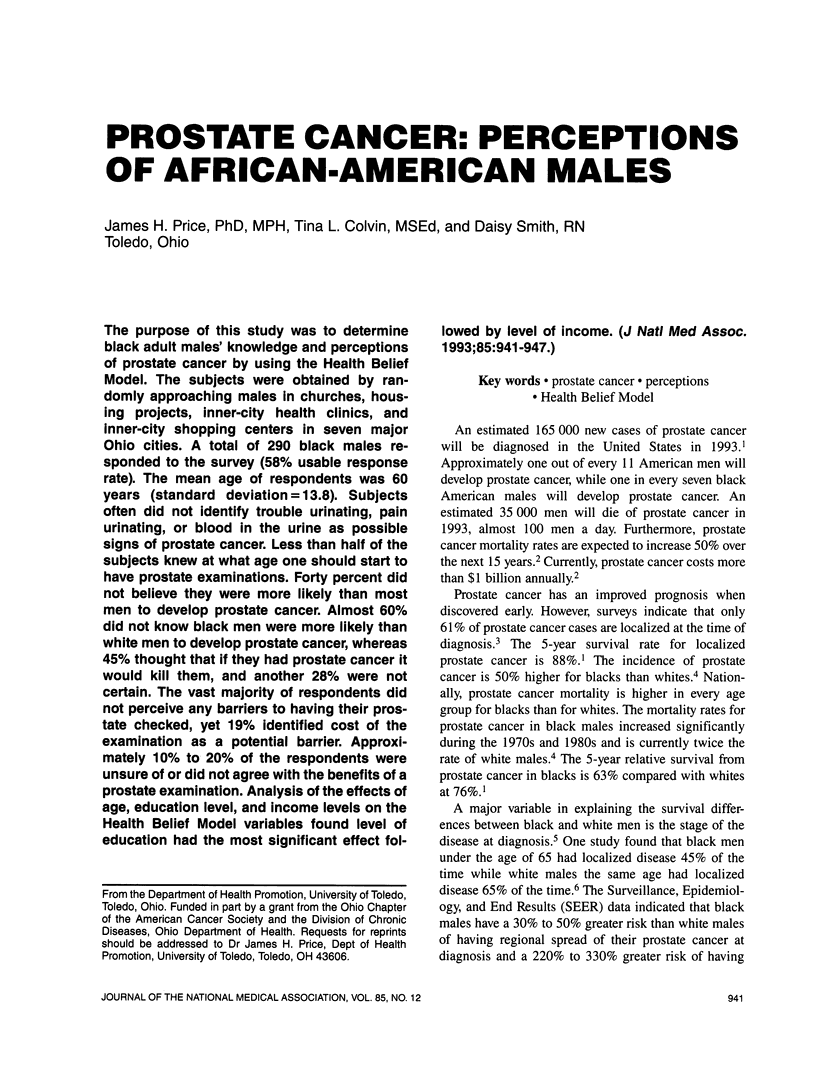
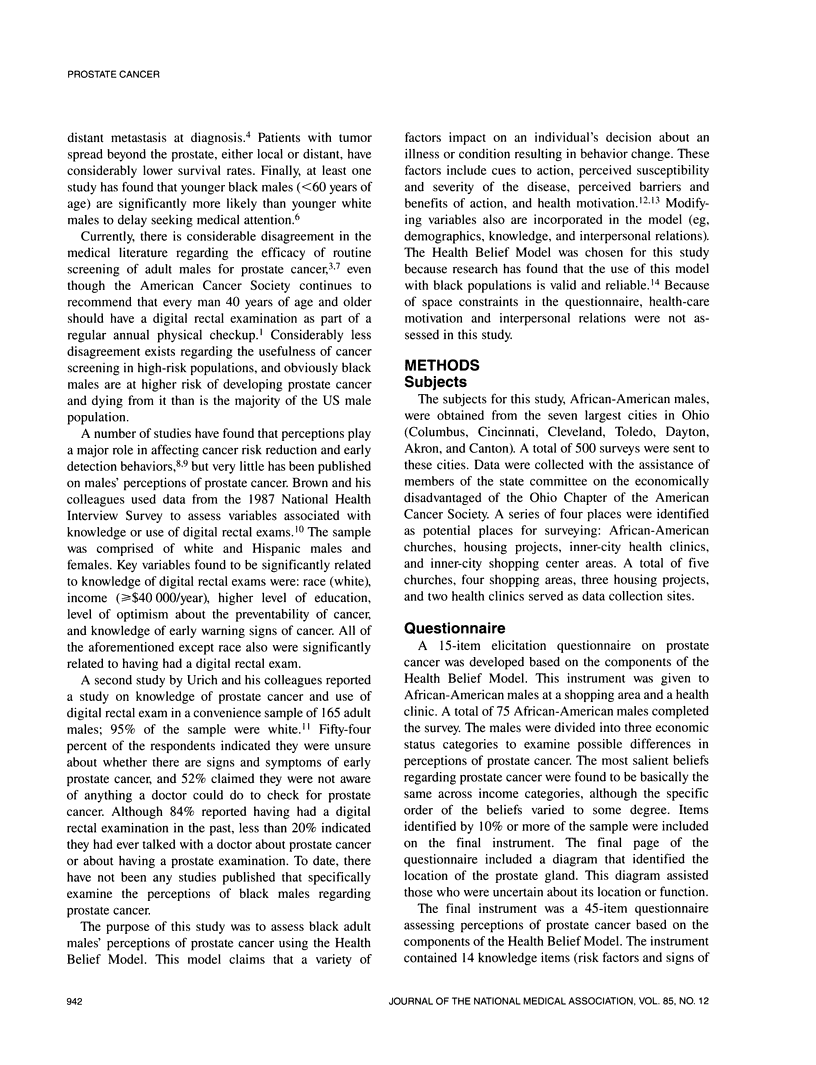
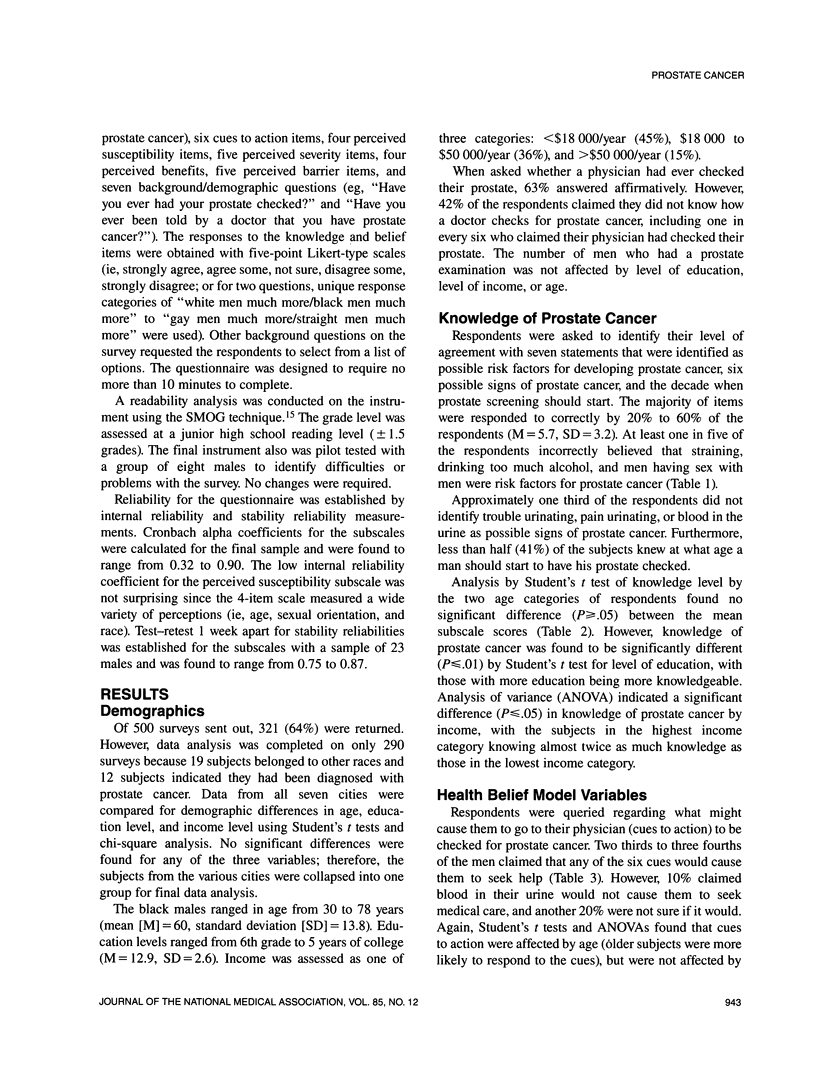
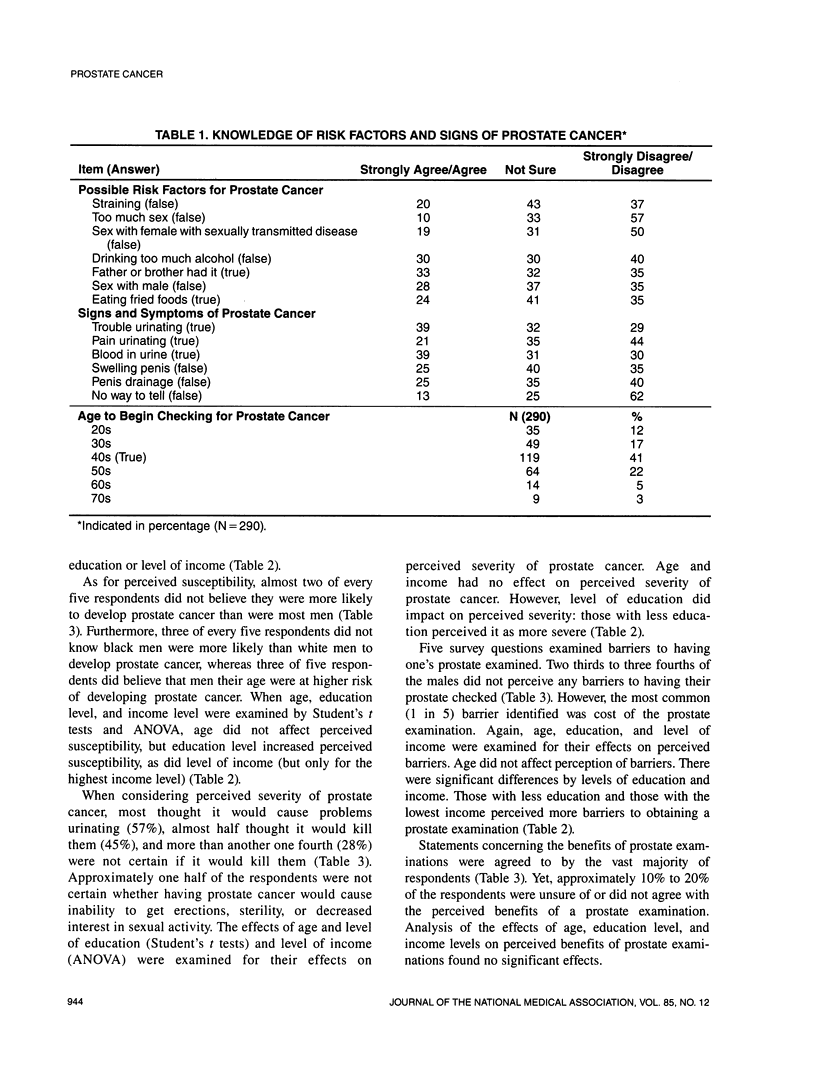
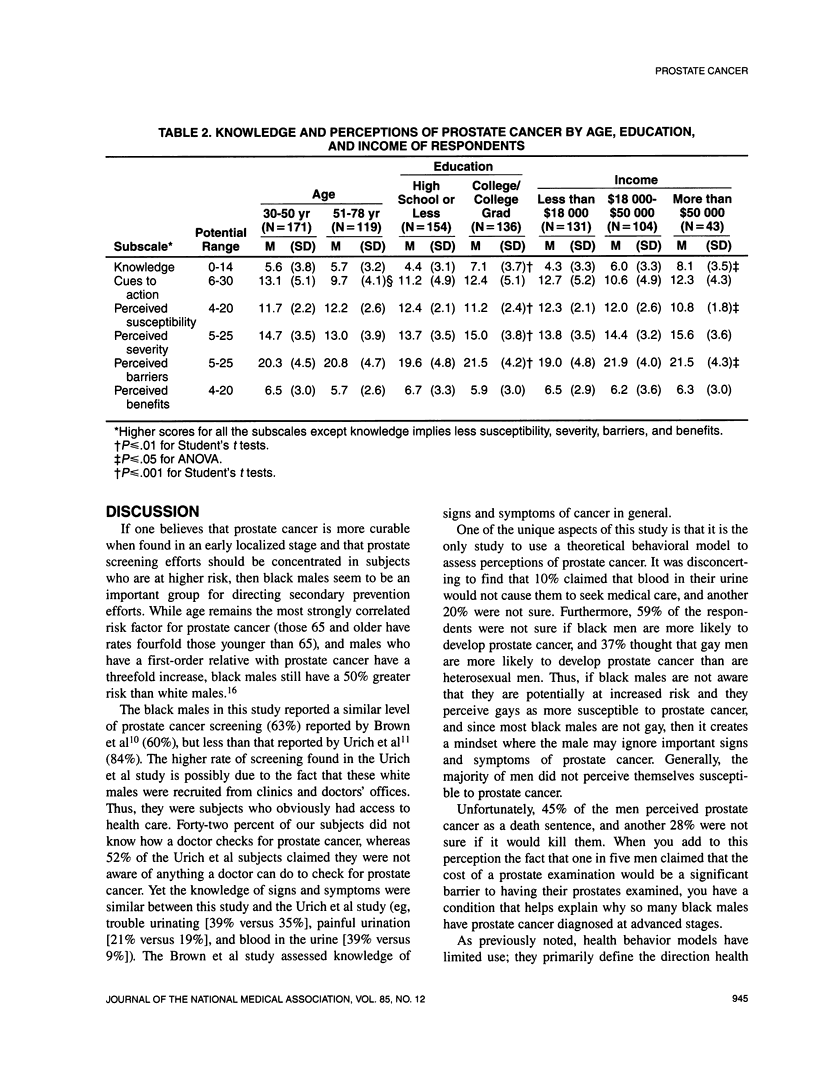
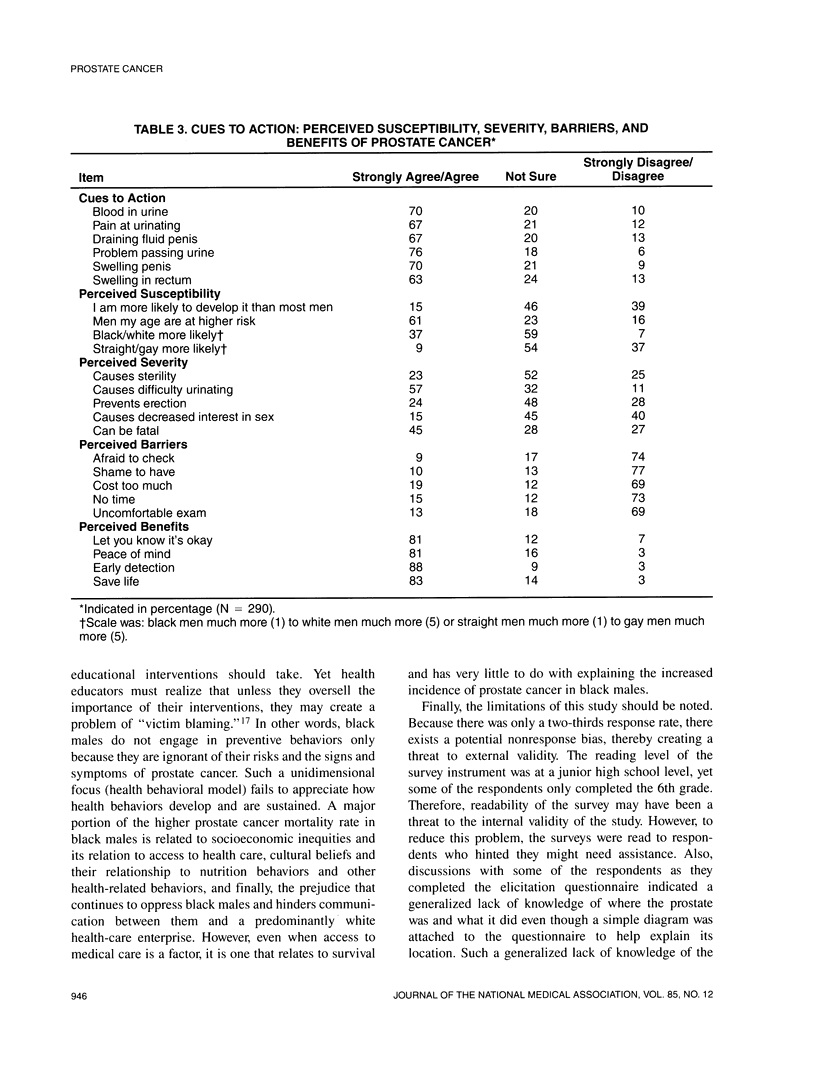
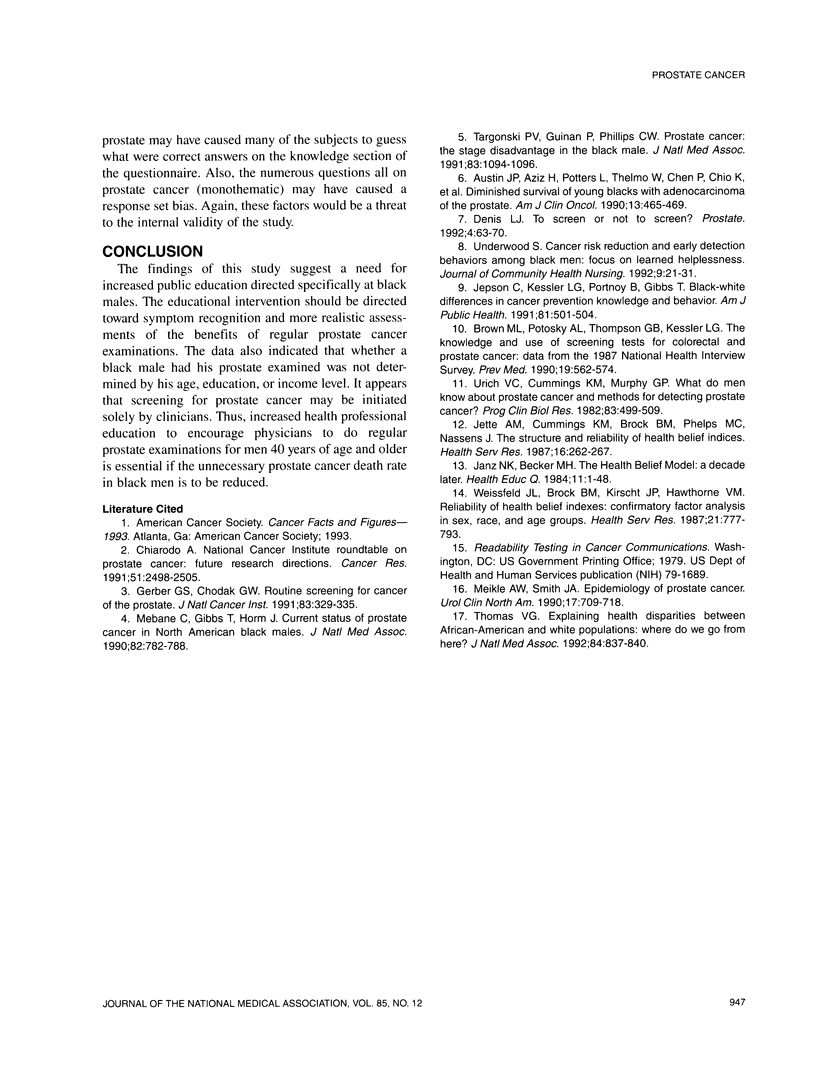
Selected References
These references are in PubMed. This may not be the complete list of references from this article.
- Austin J. P., Aziz H., Potters L., Thelmo W., Chen P., Choi K., Brandys M., Macchia R. J., Rotman M. Diminished survival of young blacks with adenocarcinoma of the prostate. Am J Clin Oncol. 1990 Dec;13(6):465–469. doi: 10.1097/00000421-199012000-00002. [DOI] [PubMed] [Google Scholar]
- Brown M. L., Potosky A. L., Thompson G. B., Kessler L. G. The knowledge and use of screening tests for colorectal and prostate cancer: data from the 1987 National Health Interview Survey. Prev Med. 1990 Sep;19(5):562–574. doi: 10.1016/0091-7435(90)90054-n. [DOI] [PubMed] [Google Scholar]
- Chiarodo A. National Cancer Institute roundtable on prostate cancer: future research directions. Cancer Res. 1991 May 1;51(9):2498–2505. [PubMed] [Google Scholar]
- Gerber G. S., Chodak G. W. Routine screening for cancer of the prostate. J Natl Cancer Inst. 1991 Mar 6;83(5):329–335. doi: 10.1093/jnci/83.5.329. [DOI] [PubMed] [Google Scholar]
- Jepson C., Kessler L. G., Portnoy B., Gibbs T. Black-white differences in cancer prevention knowledge and behavior. Am J Public Health. 1991 Apr;81(4):501–504. doi: 10.2105/ajph.81.4.501. [DOI] [PMC free article] [PubMed] [Google Scholar]
- Meikle A. W., Smith J. A., Jr Epidemiology of prostate cancer. Urol Clin North Am. 1990 Nov;17(4):709–718. [PubMed] [Google Scholar]
- Targonski P. V., Guinan P., Phillips C. W. Prostate cancer: the stage disadvantage in the black male. J Natl Med Assoc. 1991 Dec;83(12):1094–1096. [PMC free article] [PubMed] [Google Scholar]
- Thomas V. G. Explaining health disparities between African-American and white populations: where do we go from here? J Natl Med Assoc. 1992 Oct;84(10):837–840. [PMC free article] [PubMed] [Google Scholar]
- Underwood S. Cancer risk reduction and early detection behaviors among Black men: focus on learned helplessness. J Community Health Nurs. 1992;9(1):21–31. doi: 10.1207/s15327655jchn0901_3. [DOI] [PubMed] [Google Scholar]
- Urich V. C., Cummings K. M., Murphy G. P. What do men know about prostate cancer and methods for detecting prostate cancer? Prog Clin Biol Res. 1982;83:499–509. [PubMed] [Google Scholar]
- Weissfeld J. L., Brock B. M., Kirscht J. P., Hawthorne V. M. Reliability of health belief indexes: confirmatory factor analysis in sex, race, and age subgroups. Health Serv Res. 1987 Feb;21(6):777–793. [PMC free article] [PubMed] [Google Scholar]


